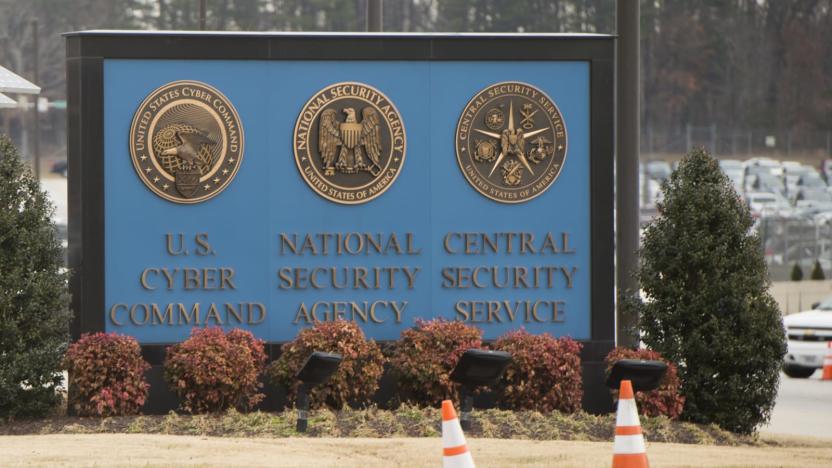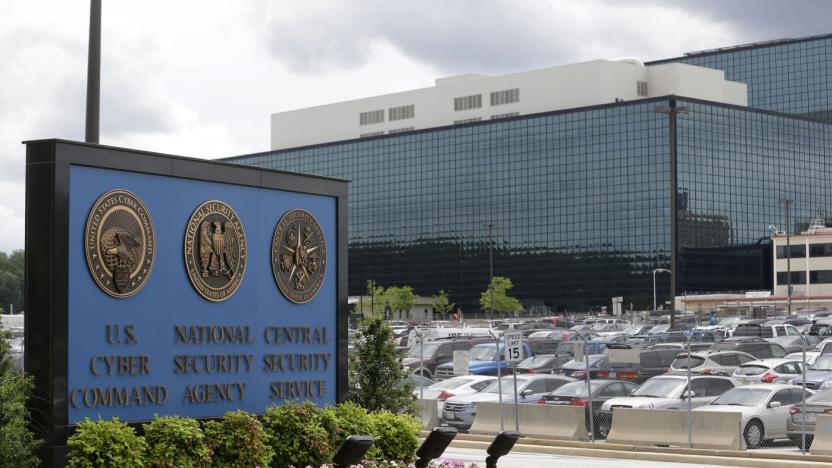freedomact
Latest

NSA deletes hundreds of millions of call records over privacy violations
The NSA unfortunately has a long history of violating privacy rules, although this time the agency might not be entirely to blame. The NSA is deleting hundreds of millions of call and text message data records (collected since 2015) after learning of "technical irregularities" that led to receiving records it wasn't supposed to obtain under the USA Freedom Act. General counsel Glenn Gerstell told the New York Times in an interview that "one or more" unnamed telecoms had responded to data requests for targets by sending logs that included not just the relevant data, but records for people who hadn't been in contact with the targets. As it was "infeasible" to comb through all the data and find just the authorized data, the NSA decided to wipe everything.

The NSA releases its first transparency report under the US Freedom Act
Back in June, President Obama signed the USA Freedom Act into law. The bill finally put limitations on the NSA's ability to bulk collect telephone data under the controversial section 215 of the Patriot Act. As part of the new bill, the NSA was compelled to release a transparency report detailing if it was meeting the privacy standards enacted by the Freedom Act. Today, the agency has published its first report, conducted by the NSA's Civil Liberties and Privacy Office (CLPO).

The NSA's mass US phone surveillance ends tonight
The National Security Agency's long-running mass phone surveillance program is coming to an end. As promised, the USA Freedom Act will forbid the NSA from indiscriminately collecting Americans' call metadata at midnight on November 29th. Agents will have to get court orders to collect data from telecoms regarding specific people or groups, and then only for six months at a time -- they can't just scoop up everything in case something useful turns up. The NSA will still have access to five years' worth of legacy data through February 29th, but that's as far as its access will go.

NSA won't look at call metadata collected under the Patriot Act
The National Security Agency is apparently willing to make a clean break from the past now that the USA Freedom Act is forcing it to scale back its large-scale surveillance efforts. The organization now says that it won't analyze call metadata collected under the Patriot Act from November 29th onward. It'll hang on to that data for another three months for "integrity purposes" (that is, verifying that new collection techniques are working) and as long as civil lawsuits require, but the goal is to destroy that info "as soon as possible." This doesn't put an end to mass surveillance (that's still practical under the new law), but it will prevent the NSA from digging through historical info that many critics believe it shouldn't have kept in the first place. [Image credit: AP Photo/Patrick Semansky]

Senate blocks NSA reform bill and Patriot Act extensions
The USA Freedom Act aimed at addressing the NSA's bulk collecting of phone call metadata was approved by the House of Representatives ten days ago, but blocked by the Senate tonight (live video stream here). The Section 215 provisions of the Patriot Act used to enact the program are set to expire June 1st, and it could go away if a compromise isn't reached to extend it. Senator Rand Paul of Kentucky filibustered to push the vote to this late hour, while Sen. Mitch McConnell pushed for a series of extensions to the program, claiming the security of the country could be at risk. The Senate is taking a weeklong Memorial Day break, but will come back on May 31st for more discussion and probably more voting. The voting is done for tonight, but we expect much more discussion over the next week.


